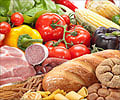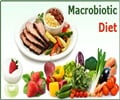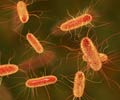A new study has said that consuming diets higher in fiber may increase the risk for Escherichia coli (E. coli) O157:H7 infection.

Scientists from the Uniformed Services University of the Health Sciences (USU) demonstrated that mice fed high-fiber diets (HFD) had elevated levels of intestinal butyrate which -- although a beneficial gut metabolite -- enhanced the gut binding-capacity of Shiga toxin made by a food-borne bacterium called E. coli O157:H7.
The study, led by Alison O'Brien, Ph.D., chair of USU's Department of Microbiology and Immunology and funded by the National Institute of Allergy and Infectious Diseases of the National Institutes of Health, showed that the amount of gut bacteria in HFD-fed mice increased while the percent of commensal Escherichia species decreased compared to gut bacteria in mice fed a low-ï¬ber diet (LFD).
"These changes led to higher E. coli O157:H7 colonization levels, more weight loss, and greater rates of death in HFD-fed than in LFD-fed STEC-infected mice," said O'Brien. Co-authors on the study include Steven D. Zumbrun, Ph.D., Angela Melton-Celsa, Ph.D., Mark A. Smith, VMD, Jeremy J. Gilbreath, Ph.D., and D. Scott Merrell, Ph.D., all from the Department of Microbiology and Immunology at USU.
Although the study showed the connection between high fiber diets and a greater risk for E. coli O157:H7 infection and disease in mice, O'Brien does not advocate changing healthy eating habits.
"High fiber diets are good for you," she said. "However, fresh produce comes from all over the world, so we need to be extra vigilant in keeping our produce free of microbial contaminants."
Advertisement
Advertisement












